How Ordinary Kids Can Be Extraordinary Citizens
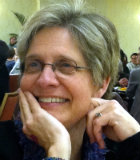
In the three months since a gunman killed 17 students at Marjory Stoneman Douglas High School in Parkland, Florida, many adults have been surprised by the conviction, courage, and impact of the student activists born out of that tragedy. We’re surprised, and impressed, by how articulate they are, how determined they are, and how savvy they are in navigating the conflict zone around a politically divisive issue.
Although the Parkland activists were forced into the spotlight by a single horrific event, they and other upstanders honed their convictions and skills from an early age—often through school experiences like drama, debate, social studies classes, and journalism.
How do young people learn to stand up, be heard, and persist in their efforts to build a better world? How can you support your middle schoolers in peaceful and productive advocacy for equity and social justice? The case study that follows suggests that three lessons are key in the evolution of effective activists.
Meet Atak Natali
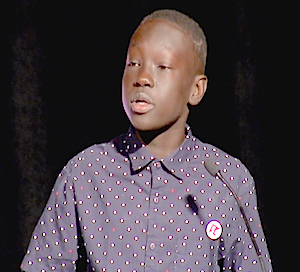
In second grade, he stood out as particularly challenged in math, and particularly determined to catch up. In middle school, he stood out as that kid who won a grant to improve his neighborhood playground. In high school he stood out to a bunch of white boys carousing past his bus stop, as “that black foreign kid” who doesn’t belong in this country.
Standing out was painful, but it also taught Atak to stand up—for himself, for his neighborhood, and, ultimately, for an entire community. Like the March For Our Lives activists from Parkland, a pivotal moment turned this ordinary kid into an extraordinary citizen. The skills that enabled him to take advantage of that moment were honed over time, and mostly in school.
Perseverance Counts More Than Talent
Atak still remembers his second grade teacher at Presumpscot School, an EL Education network school where building student character is as much a part of the curriculum as challenging academics. When Atak struggled to get his numbers in the right columns, Ms. Ridlon never gave up on him. “I learned we don’t have to be great at things right away,” he says. “We just have to be committed.”
His teacher didn’t just give Atak the space to try and try again. She also named, taught, and created opportunities for students to reflect on the habits of scholarship and character the school calls The Presumpscot Promise. When teachers show students what it looks like and sounds like to persevere, when they celebrate growth as much as they celebrate achievement, students receive a booster shot of resilience and commitment that can last a lifetime.
In the video Austin’s Butterfly: Building Excellence in Student Work, which has been viewed nearly a million times by educators around the world, nine-year-old Atak praised another student for persevering on a scientific drawing.
Big Things Happen When Kids Work Together
Later, learning to persist in his school work accelerated Atak’s academic momentum. His middle school experience transformed that momentum into a powerful force for the broader community. Like many quiet kids, Atak was a keen observer. He noticed that his working class neighborhood was full of trash, and he noticed particularly that a neighborhood playground that would be a lot of fun for him and his younger sisters was dilapidated and broken. But what could he do about it?
Atak took that dilemma to an after-school club run by Americorps volunteers called “Make It Happen!” that helps multilingual students be successful at school and in the community. Atak asked, “What can I do to fix those broken swings?”
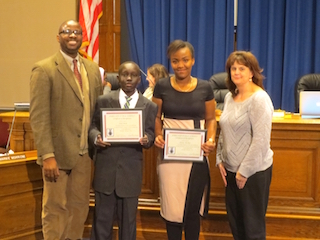
7th graders Atak & Divine Macibiri were recognized by the Portland School Board for their project leadership.
The club advisor knew about a local organization called Painting for a Purpose that provides funding to help young people put their ideas into action. With support from his social studies teacher, Atak applied for the grant and received $500 to clean up the playground.
“I wanted to bring hope to the neighborhood. And the best way I could think to do this was by reaching to the kids,” he says. He and his friends knocked on doors to organize neighbors to help with the cleanup. On the morning of the playground workday, Atak turned to his mom as he left the house and said, “Big things are going to happen today.”
And big things did happen, he says now, because teachers and students, friends, neighbors, his principal, and even some folks from the local Red Cross all worked together to improve one small part of their community.
Be Courageous: Your Crew Has Your Back
Today Atak is a high school sophomore, and the lessons he’s learning about standing up and making a difference have gotten more perplexing. He’s growing up in a city with a large, diverse immigrant population, and in a time when some on the national and local front are challenging immigrants’ rights.
The school Atak attends, Casco Bay High School, addresses the complexity of striving for social justice in a polarized society through “learning expeditions,” in-depth interdisciplinary studies requiring authentic research, reading, discussion, and problem-solving.
As a high school student with a deep interest in history, Atak is especially inspired by recent expeditions on the American civil rights movement and African social justice movements. “It made me feel angry,” he says, “to learn that black people were then and still are suffering to get the same rights as other people.” He’s turning that powerful emotion into action by producing a podcast about expanding and preserving voting access for all Americans.
In addition, Casco Bay students begin every morning in Crew, a small group of teens and one teacher who stay together for the full four years of high school and who focus daily on helping the students feel they belong and can succeed in the Casco Bay community. “We have courageous conversations in Crew,” says Atak, in which students explore choices and consequences, conflicts and how to resolve them.
So this year, when Atak and his friend were assaulted on the street because they are immigrants, Crew was a natural place to come to grips with his fear and confusion. Word quickly spread throughout the school, but instead of isolating Atak and his friend, or overreacting with anger and outrage, teachers, leaders, and students embraced the incident as an opportunity to organize and stand up for all immigrants in the school.
A hate-crime against one of their own prompted a structured school-wide conversation, and Atak stepped up to lead organized action to counter the discrimination he’d experienced. His Crew, and the broader community of Casco Bay, marched alongside him in solidarity to stand up for diversity, equity, and compassion. Now his toolkit for life includes the conviction that even an ordinary kid can be courageous and take action “to make the world a little more peaceful.”
Notably, teachers and leaders at Casco Bay were immediately responsive to the bus stop incident. It sparked a schoolwide march for solidarity. This video shows the power of their collective action to change the community and to change students’ lives.
Although he’s not yet finished high school, Atak is quickly becoming a more confident upstander. Recently he took to heart the lessons he’s learned to board a plane for the first time in his life, speak about his experience to more than a thousand conference goers, and become a spokesperson for his school and other immigrants in the Casco Bay area. He hopes one day to be a lawyer working to achieve justice for all people.
In the meantime, the lessons of perseverance, community, and courage are serving Atak well. Atak’s experience also reveals important lessons for teachers, especially in middle school, where students are so often the victims of bullying and isolation.
The Take Away
Stoke Students’ Courage: If you want to nurture activists, begin by building up students’ academic courage. Give students complex and difficult academic tasks that require close reading, perspective taking, and supporting claims with evidence. Break those tasks down, so that students can see the incremental steps that lead to success over time. Teach students to analyze and learn from their own first-attempt mistakes. Then celebrate students’ growth and courage for doing hard things.
Foster the Power of Peers: Recognize that collaboration is not just a soft skill that makes the classroom a more congenial place to learn. Teaching students to organize, communicate with, lead, and learn from others strengthens their ability to climb a mountain or start a movement.
The Parkland students’ facility with social media and Atak’s gentle persuasion of his neighbors required sophisticated communication skills. If you want to build an upstander, give your students opportunities to speak in class, to debate authentic issues, and to plan (not just execute) collaborative efforts with peers and in the community.
Tap into What Kids Care About: Support students in becoming upstanders by noticing the everyday injustices—large and small—that kids really care about. Connect those events to larger social issues and public debates in classrooms and across the school.
Give students a forum for discussing the issues respectfully and openly. Then sit back and watch students step up to advocate not just for themselves, but also for others and for their communities.
If we’ve learned anything from the groundswell of activism after Parkland, it’s this: when teachers support students to do difficult things well, when they give students opportunities to lead, organize, and collaborate, and when they encourage students to facilitate courageous conversations with peers, students will stand up and be counted as champions for equity and justice.
Photo Credit: Katie Schneider
_______________________________________________________________
Anne Vilen is Senior Writer for EL Education and co-author (with Ron Berger & Libby Woodfin) of Learning that Lasts: Challenging, Engaging, and Empowering Students with Deeper Instruction (Jossey-Bass, 2016). Previously, she taught language arts in middle and high school and served as Director of Program and Professional Development in an EL Education mentor school. Follow her on Twitter @ELEd_AnneVilen.

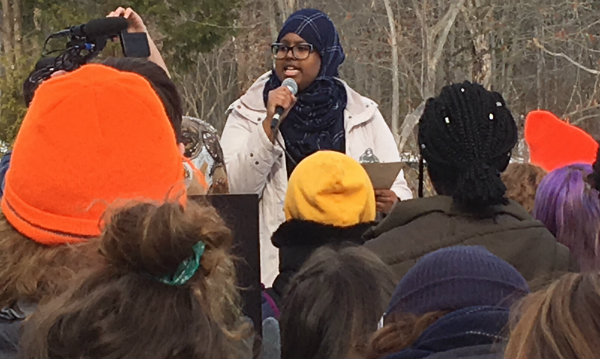
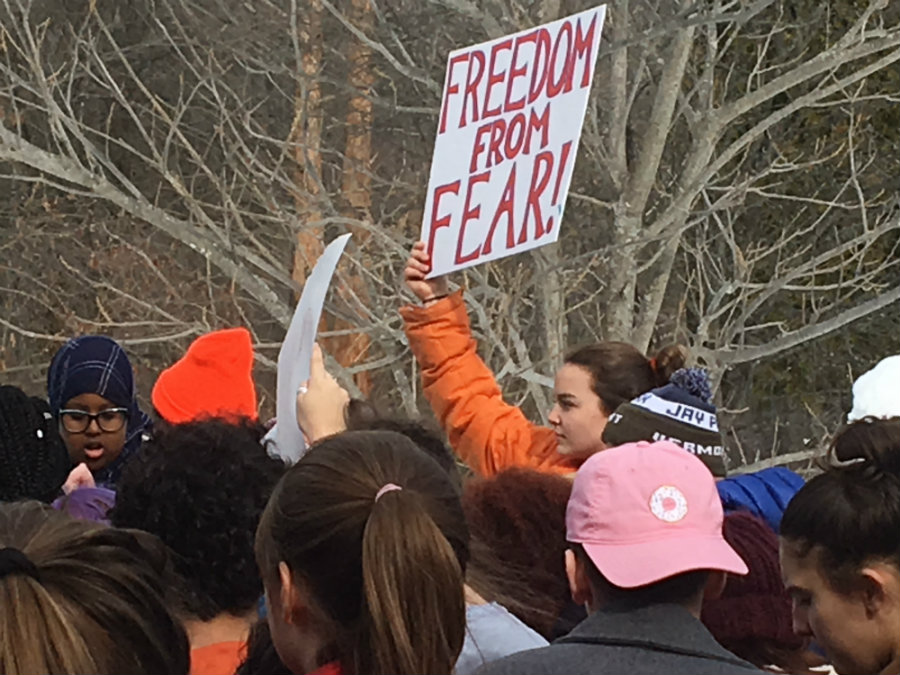












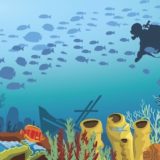























I met this kid the other day and loved his name so much I had to look him up. I’m very touched reading this story.